Related Research Articles
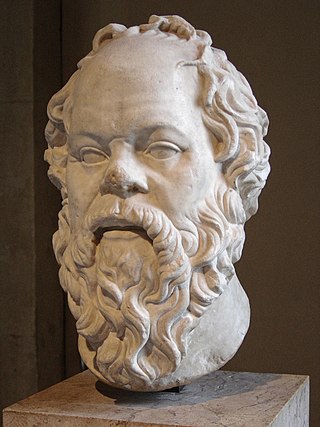
An intellectual is a person who engages in critical thinking, research, and reflection about the reality of society, and who proposes solutions for its normative problems. Coming from the world of culture, either as a creator or as a mediator, the intellectual participates in politics, either to defend a concrete proposition or to denounce an injustice, usually by either rejecting, producing or extending an ideology, and by defending a system of values.

Daniel Bell was an American sociologist, writer, editor, and professor at Harvard University, best known for his contributions to the study of post-industrialism. He has been described as "one of the leading American intellectuals of the postwar era". His three best known works are The End of Ideology (1960), The Coming of Post-Industrial Society (1973), and The Cultural Contradictions of Capitalism (1976).
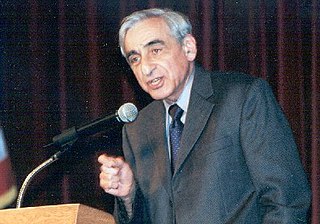
Michael Laban Walzer is an American political theorist and public intellectual. A professor emeritus at the Institute for Advanced Study (IAS) in Princeton, New Jersey, he is editor emeritus of the left-wing magazine Dissent, which he has been affiliated with since his years as an undergraduate at Brandeis University, an advisory editor of the Jewish journal Fathom, and sits on the editorial board of the Jewish Review of Books.

Michael S. Schudson is professor of journalism in the graduate school of journalism of Columbia University and adjunct professor in the department of sociology. He is professor emeritus at the University of California, San Diego. He is an expert in the fields such as journalism history, media sociology, political communication, and public culture.

Telos is a quarterly, independent peer-reviewed scholarly journal that publishes articles on politics, philosophy, and critical theory, with a particular focus on contemporary political, social, and cultural issues.
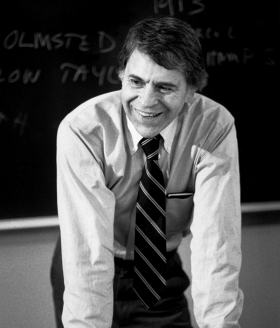
Robert Christopher Lasch was an American historian, moralist and social critic who was a history professor at the University of Rochester. He sought to use history to demonstrate what he saw as the pervasiveness with which major institutions, public and private, were eroding the competence and independence of families and communities. Lasch strove to create a historically informed social criticism that could teach Americans how to deal with rampant consumerism, proletarianization, and what he famously labeled "the culture of narcissism".
Ellen Hinsey is an author, researcher and professor. Her work is concerned with history, ethics and democracy with a focus on Central and Eastern Europe. She has taught at the French graduate school the Ecole Polytechnique and Skidmore College's Paris program. She has most recently been a visiting professor at Georg-August-Universität in Göttingen.

David Brion Davis was an American intellectual and cultural historian, and a leading authority on slavery and abolition in the Western world. He was a Sterling Professor of History at Yale University, and founder and director of Yale's Gilder Lehrman Center for the Study of Slavery, Resistance, and Abolition.
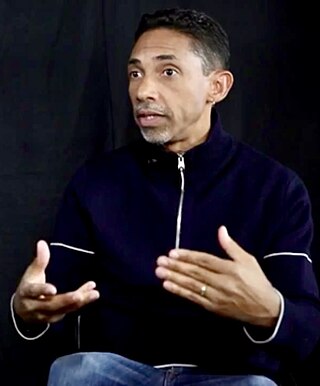
Robin Davis Gibran Kelley is an American historian and academic, who is the Gary B. Nash Professor of American History at the University of California, Los Angeles (UCLA).

Miklós Haraszti is a Hungarian politician, writer, journalist, human rights advocate and university professor. He served the maximum of two terms as the OSCE Representative on Freedom of the Media from 2004 to 2010. Currently he is adjunct professor at the School of International & Public Affairs of Columbia Law School, New York and visiting professor at the Central European University (CEU), Department of Public Policy.
George Scialabba is an American book critic and retired building manager at Harvard University. His reviews have appeared in Agni, The Boston Globe, Dissent, the Virginia Quarterly Review, The Nation, The American Prospect, and many other publications. In 1991, Scialabba received the first annual Nona Balakian Citation for Excellence in Reviewing from the National Book Critics Circle.
Mark Lilla is an American political scientist, historian of ideas, journalist, and professor of humanities at Columbia University in New York City. A self-described liberal, he typically, though not always, presents views from that perspective.

Emanuel Levy is an American film critic and professor emeritus of sociology and film of Arizona State University. For the past 50 years, he has taught a wide variety of courses in sociology, film studies, and popular culture at Columbia University, New School for Social Research, Wellesley College, UCLA, and Arizona State University.
Mitchell Cohen is an author, essayist and critic, He is professor of political science at Baruch College of the City University of New York and the CUNY Graduate Center. From 1991 to 2009, he was co-editor of Dissent, one of the United States' leading intellectual quarterlies. He is now an Editor Emeritus.
Tariq Rahman is a Pakistani academic scholar, newspaper columnist, researcher, and a writer.
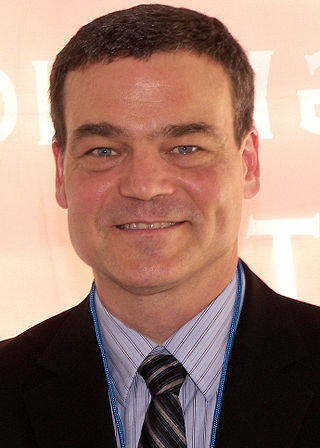
T. J. Stiles is an American biographer who lives in Berkeley, California. His book The First Tycoon: The Epic Life of Cornelius Vanderbilt won a National Book Award and the 2010 Pulitzer Prize for Biography or Autobiography. His book Custer's Trials: A Life on the Frontier of a New America received the 2016 Pulitzer Prize for History.

Vinay Lal is an Indian historian. He is a professor of history and Asian American studies at UCLA. He writes widely on the history and culture of colonial and modern India, popular and public culture in India, cinema, historiography, the politics of world history, the Indian diaspora, global politics, contemporary American politics, the life and thought of Mohandas Gandhi, Hinduism, and the politics of knowledge systems.

America-Lite: How Imperial Academia Dismantled Our Culture is a 2012 book by David Gelernter, published by Encounter Books. The term "America Lite" has also been used to jokingly refer to the country of Canada by Americans because of its proximity and cultural similarities to the United States.
Western Marxism is a current of Marxist theory that arose from Western and Central Europe in the aftermath of the 1917 October Revolution in Russia and the ascent of Leninism. The term denotes a loose collection of theorists who advanced an interpretation of Marxism distinct from classical and Orthodox Marxism and the Marxism-Leninism of the Soviet Union.
Sanford M. Jacoby is an American economic historian and labor economist, and Distinguished Research Professor of Management, History, and Public Policy at University of California, Los Angeles. He is known for his studies of the transformation of work in American industry, corporate governance, Japanese management, and welfare capitalism.
References
- ↑ "Review of 'Velvet Prisons: Russell Jacoby on American Academia' | Inside Higher Ed". www.insidehighered.com. Retrieved 2022-12-24.
- ↑ "Faculty | UCLA History". Archived from the original on 2022-07-07. Retrieved 2022-12-24.
- ↑ [lastintellectuals.jigsy.com "Velvet Prisons"].
{{cite web}}: Check|url=value (help) - ↑ "Documentary Film makers & Film Productions. Watch Documentaries Online".
- Going Public [ dead link ], Washington Post, by Michael Berube Sunday, July 7, 2002
- UCLA History Department online biography
- Russell Jacoby versus Eric Lott Columbia University online March 24, 2006
- USC Libraries online thumbnail biography
- Russell Jacoby’s PICTURE IMPERFECT Lauren Langman, Columbia University Press, 2005